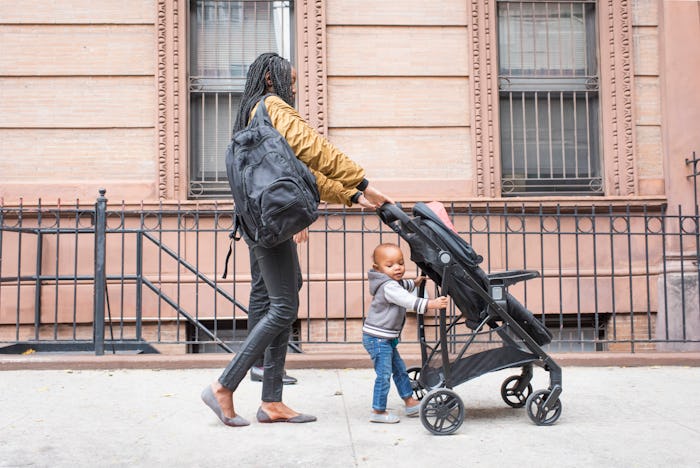Life

We Don't Need To Reply 'I'm Doing Great!’ When People Ask
On weekend mornings when my son woke at 6:30 ready to take over the world, we would visit Target (it opens early), do muffin and coffee at a bakery nearby, soccer class, a playdate at the playground, reading at the library, and it would only be lunchtime. He would refuse to take a nap, I would be emotionally spent, and at some point I would go into the bathroom and close the door to cry.
Yet, when I found myself socializing with other moms later that day no matter their state, they would immediately smile and look happy when they stopped to talk. Everyone was having a great weekend, or yes they were tired, but life was great. I usually got a run down of a long, exhausting day and then a “but it’s fine, I’m doing good.”
The problem is not that people were lying or being fake: they actually needed to have this attitude. They needed to smile in order to not worry their kid, or to avoid another exhausting conversation about gendered norms and unbalanced mental loads with their partners. We smile and act happy because we do not actually have any emotional space to be otherwise.
Staying in touch with the aches, dullness, pains, and anger we feel on a daily, if not hourly, basis takes energy and time. For many of us, before we had a child, it would help our decision-making: should we go grab a glass with co-workers or go home and read alone? Should we be seeing a therapist, spending more time with our spouse, more time outside. Now, when our choices are limited, and our decision to do any self-care often means it comes at the loss of time or energy with our little one(s).
But always being OK is not sustainable.
I reached my tipping point a few months ago when after I received some unexpected bad news at work and had a stressful and anxious set-back with my adoption process. There was absolutely no going back emotionally from all of this. Yet, every weekend was packed: a romantic get-away in the Hudson, our annual camping trip, birthday parties of dearest friends and their kids. There was no time or space for me to be down, anxious, or upset, and all of it just sat in me and came out as restless nights and short words at my partner.
The external demands on me at that time were very real. I was starting a new lecturer position, navigating our adoption process, and leading on several work projects. I had to be on top of my game and that meant coming to terms with all of myself.
I had to first stop pretending I was not burned out. That part was easy. Then I had to truly give myself real emotional space. I told my son what was happening in the most simplified ways I could, I started running in the park on my own, I began taking time out to write every night and let my husband help put my son to bed. I even did the unthinkable: I left the house every so often for an hour of alone time.
It did not make my anxiety go away — time does that on its own — and thankfully a lot of the stress not only got resolved, but settled in an even more positive way than before. Moreover, what being honest about these stresses did is allow me to be more in tune with myself and my needs, and navigate the spaces I wanted and needed to be in. I realized I needed to give myself more regular, if short, downtimes to do the things I loved, like reading fiction and attending shows, and that these could not be considered “treats.” I worry less now about missing out on social events, and spend more time with the community and friends that truly nourish me. I also feel less pressure to be connecting with my partner every time my son goes down to sleep. I need to connect with myself first. Instead of powering through, I am now pausing, checking in to understand what I truly need.
Now, when my friends ask me how I’m doing and I say “great” because I really feel that way — and also because I know there may be a time I won’t, which will be OK too. And when I ask my friends how they are and they say “tired, overwhelmed, exhausted,” I take comfort in their honesty and know we are all in this together. We teach our kids to be OK with whatever they’re are feeling. It’s time we took that advice.
This article was originally published on